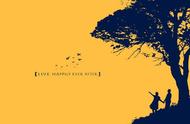
Unit6 An old man tried to move the mountains.
Unit 6单词 (音标)
shoot [ʃu:t] v. 投篮,射击,发射
stone [ˈstəʊn] n. 石头
weak [wi:k] adj. 虚弱的,柔弱的
god [ɡɒd] n. 上帝,神
remind [rɪˈmaɪnd] v. 提醒,使想起
bit [bɪt] n. 一点,小块a little bit 有点儿,稍微
silly [ˈsɪlɪ] adj. & n. 愚昧的;傻子,蠢货
instead of 代替,反而
turn into 变成
object [ˈɒbdʒɪkt] n. 物体,目标,物品
hide [haɪd] v. 躲藏,隐藏
tail [teil] n. 尾巴
magic [ˈmædʒɪk] n. 魔法,巫术
stick [stɪk] n. & v. 棍,棒;刺,戳,插
excite [ɪk'saɪt] v. 使激动,使兴奋
Western ['westən] adj. 西方的,欧美的
once upon 从前
stepsister [ˈstepsɪstə(r)] n. 继姐(妹)
prince [prɪns] n. 王子
fall in love 爱上,喜欢上
fit [fɪt] v. 适合,合身
couple ['kʌpl] n. (尤指)夫妻,两人
smile [smaɪl] n.& v. 微笑
marry [ˈmæri] v. 与某人结婚
get married 结婚
gold [ɡəʊld] n. 黄金,金币
emperor [ˈempərə] n. 皇帝
silk [sɪlk] n. 丝绸
underwear [ˈʌndəwɛə] n. 内衣
nobody [ˈnəʊbədi] pron. 无人,没有任何人,谁也不
stupid ['stju:pɪd] adj. & n. 愚蠢的,傻的;傻子
cheat [tʃi:t] v. 欺骗,愚弄
stepmother [ˈstepmʌðə(r)] n. 继母
wife [waɪf] n. 妻子
husband [ˈhʌzbənd] n. 丈夫
whole [həul] adj. 全部的,整体的
scene [si:n] n. 舞台,(戏剧)场景
moonlight ['mu:nlaɪt] n. 月光
shine [ʃaɪn] v. 照耀,发光
bright [braɪt] adj. & adv. 明亮的,发亮的;明亮地
ground [graʊnd] n. 地面
lead [li:d] n.& v. 领导,主角;带路
voice [vɔis] n. 嗓音
brave [breiv] adj. 勇敢的
Claudia 克劳迪娅(女名)
Journey to the West 《西游记》
the Monkey King 美猴王
Sleeping Beauty 《睡美人》
Cinderella 《灰姑娘》
Little Red Riding Hood 《小红帽》
Hansel and Gretel 《韩赛尔与格雷特》(《糖果屋》)
Unit6 知识梳理
【重点短语】
1. work on doing sth. 致力于做某事
2. as soon as ... 一……就…....
3. once upon a time 从前
4. continue to do sth. 继续做某事
5. make sth. happen 使某事发生
6.try to do sth. 努力做某事
7. the journey to sp. ......之旅
8. tell the/a story 讲故事
9. put on 穿
10. a little bit 有点儿
11. keep doing sth. 坚持做某事
12. give up 放弃
13. instead of 代替;反而
14. turn...into... 使......变成......
15. get married 结婚
16. the main character 主要人物;主人公
17. at other times 在另外一些时候
18. be able to 能;会
19. come out (书、电影等)出版
20. become interested in... 对……感兴趣
21. walk to the other side 走到另一边去22. a fairy tale 一个神话故事
23. the rest of the story 故事的其余部分
24. leave sb. to do sth. 让某人做某事
25. make a plan to do sth.
筹划/计划做某事
26. go to sleep 去睡觉
27. lead sb. to sp. 把某人领到某地
28. get lost 迷路
29. change one’s plan 改变计划
30. tell sb. to do sth. 叫某人做某事
31. in the moonlight 在月光下
32. find one’ s way home
找到某人回家的路
33. the next day 第二天
34. send sb. to sp. 派某人去某地
35. so...that... 如此.......以致于.......
【重点句型】
1.So what do you think about the story of Yu Gong? 你觉得愚公的故事怎么样?
2. It doesn't seem very possible to move a mountain.
把一座山给移掉好像不太可能。
3.This is because he can make 72 changes to his shape and size, turning himself into different animals and objects.
这是因为他会根据他的形状和大小,做出72种变化,可以将自己变成不同的动物或东西。
4.Sometimes he can make the stick so small that he can keep it in his ear.
有时候,他能够让他的金箍棒变得很小,以至于可以放在耳朵里。
5.Because they were so big that it took a long time to walk to the other side.
这些(山)太高了,他们要花好长时间才能翻越过去。
6.Don't eat it until you get to the forest.
你们到达森林之后才能吃。
【话题写作】
同学们对“愚公移山”的故事一定有着很深的印象吧?请根据本单元所学内容及下面的提示词语,以The story of YuGong为题,把“愚公移山”的故事用英语简要叙述一下,并谈一谈你从故事中学到了什么。80词左右,开头已给出,不计入总词数。提示词语:move themountains, zhisou, die, sons, grandsons, continue, god, be moved, help
【优秀满分范文】
The story of YuGong
Once upon a time, there was an old man called YuGong. Although he was almost 90, he decided to move the mountains. A clever man called Zhisou said,“you are too old to move the mountains.” Yugong said,“If I die, my sons still do this, and if my sons die, my grandsons continue doing this.”then a god was moved by Yugong, so he sent two gods to help him. From this story, I learn that anything is possible if we work hard.
Unit6 重点词汇讲解
1. finish doing
finish意为“完成,结束”,作及物动词时,其后可跟名词、代词或动名词。即:finish sth.或finish doing sth.。例如:
I finished my homework this morning.
我今天上午做完了作业。
When did you finish drawing the picture?
你什么时候画完那副画的?
Can you finish reading this booktomorrow?
明天你能读完这本书吗?
【拓展】能接v.-ing作宾语的动词还有:
practice; enjoy; mind; keep等。
practice doing sth. 练习做某事
enjoy doing sth.喜欢做某事
mind doing sth.介意做某事
keep doing sth. 一直做某事
①In my class, most of the students enjoy singing English songs.
在我们班,大多数学生喜欢唱英语歌。
②Do you mind opening the window?
你介意打开窗户吗?
2. finally
finally是副词,多修饰动态动词,位置较灵活,可位于句中、句首或句尾,位于句中时,要放在be动词、助动词和情态动词之后,行为动词之前。They finally found the lost child.
他们终于找到了丢失的孩子。
He worked out the math problem finally.
他终于解出了那道数学题。
【拓展】finally; at last和in the end的辨析:
(1) finally。强调在列举论点时,引出最后一个内容,有表示盼望已久的事情终于实现了的含义。侧重最后的结果。例如:
They talked about it for hours, finally they decided not to go. 他们为此讨论了几个小时,最后决定不去了。
(2) at last。 强调经过曲折后才达到目的。表示期待的感情更为强烈。侧重指先后顺序,并且在句中的位置较为灵活。例如:
When they found him at last, he was almost dead. 当他们最终找到他时,他几乎死过去了。
(3) in the end。在强调经过许多变化、困难之后才达到目的时,与at last的用法一样,且位置较为灵活。但在表示对将来的结局表示预测时,只能用in the end。例如:
He tried many different jobs, and in the end he became a postman.
他做过许多工作,最后当了一名邮递员。
3. remind
(1) remind是及物动词,意思是“提醒、使某人想起”,经常和介词of连用,构成动词短语
remind sb. of sb. / sth.
=remind sb. that+从句,意思是“使某人想起某事或者某人”。 例如:
Does that song remind you of your mother?
那首歌使你想起你的妈妈吗?
(2) 动词短语remind sb. to do sth. 的意思是“提醒某人做某事”。例如:
Please remind me to return the books to the library. 请提醒我把这些书还给图书馆。
4. sound stupid
sound在此是系动词,意为“听起来”,后面接形容词作表语。例如:
The song sounds wonderful!
那首歌听起来太精彩了!
The music sounds beautiful.
这首音乐听起来很美。
【拓展】
类似sound这种用法的词还有:
feel(摸起来,感觉);smell(闻起来);
look(看起来);taste(品尝)等。例如:
The food tastes delicious.
食物尝起来很美味。
I feel so happy today. Mum will buy me a new bike.我今天很高兴,妈妈要为我买辆新自行车。
The old man looks very happy.
那个老人看起来很幸福。
These flowers smell very sweet.
这些花闻起来很香。
The tomatoes feel very soft.
这些西红柿摸起来很软。
【注意】
smell; look等系动词不同于系动词be,它们在变疑问句或否定句时不能简单地提到主语之前或加not,而是要通过助动词do/does/ did等来帮助实现。例如:
Does it smell nice?
它闻起来很好吗?
The chicken doesn’t taste good.
鸡肉尝起来不好。
How do the children look?
孩子们看起来怎么样?
5. get married
(1) get married意为“结婚”。若问某人是否结婚,而不涉及结婚的对象,可用be / get married的形式,相当于系表结构。例如:
你结婚了吗?
【误】 Do you marry?/ Have you married?
【正】 Are you married?
或Have you got married?
(2) be / get married to sb. 意为“与某人结婚”。Alice was married to a doctor last month.
上个月爱丽丝和一位医生结婚了。
【拓展】marry既可用作及物动词,也可用作不及物动词,意为“结婚;嫁;娶;与……结婚等”。常见用法如下:
(1) marry sb.意为“与……结婚”。例如:
John married Mary last week.
上星期约翰和玛丽结婚了。
(2) marry sb. to sb.意为“把某人嫁给某人”。
She married her daughter to a businessman. 她把女儿嫁给了一位商人。
(3) marry 一般不与介词with 连用。
她和一位英国人结了婚。
【误】She married with an Englishman.
【正】She married an Englishman.
或 She was / got married to an Englishman.
6. along
along作介词,意为“沿着”,课本中的
along the way意为“沿路”。例如:
There are trees all along the road.
沿着这条路从头到尾都有树。
【拓展】along;across与through的辨析:
(1) along意为“沿着”,指沿着一条直线在水平方向上运动。例如:
I saw him running along the road.
我看见他正沿着这条路跑。
(2) across意为“横过,穿过”,主要表示从某物的表面横过。例如:
He walked across the road carefully.
他小心地走过马路。
(3) through意为“横过,穿过”,表示从某个空间或内部穿过。例如:
He walked through the forest alone.
他独自一人走过森林。
7. maybe
maybe作副词,意为“也许;大概”。例如:
Maybe he is a teacher. 也许他是个老师。
【拓展】辨析:Maybe与may be
(1) maybe是副词,主要用于非正式场合,口语中常用。意为“也许,大概”。它通常放在句子的开头,在句子中作状语。例如:
Maybe they won’t come here tonight.
他们大概今晚不会来这儿。
Maybe she is happy. 也许她是幸福的。
(2) may be是“情态动词may 动词原形be”构成的,在句中做谓语,意为“可能是、大概是”。如:She may be at home. 她可能在家。(也可以说:Maybe she is at home.)
You may be right. 你可能是对的。(也可以说:Maybe you are right.)
8. be made of
be made of 意为“由……制成”,强调从制成品中仍可以看出原材料。
The desk is made of woods.
桌子是由木头制成的。
【拓展】be made 后接不同的介词,具有不同的意义。
(1) be made from意为“用……制成”,强调从制成品中看不出原材料。
Books are made from woods.
书是由木头制成的。
(2) be made in 意为“由……制造(生产)”,强调生产地点,in后只接地点的名词。
The kind of watch is made in Shanghai.
这种手表是在上海制造的。
(3) be made up of 意为“由……组成”或“由……构成”, 强调由多种成分、团体、成员或单位等组成或构成。
Our class is made up of twenty-eight girls and sixteen boys. 我们班由二十八个女孩和十六个男孩组成。
(4) be made into意为“把……制成……”,注意表示原材料的词作句子的主语,表示制成品的词作介词into的宾语。
Glass can be made into all kinds of beautiful things. 玻璃可以制成各种各样漂亮的物品。
词汇精练:
I. 英汉互译。
1. as soon as ___________________
2. 似乎很可能___________________
3. 结婚___________________
4. 听起来愚蠢___________________
5. make a plan ___________________
6. along the way ___________________
7. because of ___________________
8. finish doing sth. ___________________
9. hear sb. doing sth. ___________________
10. 从前___________________
II. 根据句意及首字母和汉语提示写出所缺单词。
1. Thanks for your gift, it r_______ me of you.
2. If you want to show your kindness, you can ________(微笑) at others.
3. The Monkey King always tries to fight bad people and help the w___________.
4. She spent the __________(整个的) evening finishing the task.
5. How s___ you are! The question is very easy.
6. It not right to _____(欺骗) others.
7. Look, the sun is s____ through the window.
8. The shirt does not ________(适合) me. It’s too large for me.
9. The b________ boy saved a little girl by jumping into the cold river.
10. The man asked his girlfriend to _________(嫁) him.
III. 用括号内所给单词的适当形式填空。
1. In some _________(west) countries, the song is very popular.
2. The T-shirt is ________(make) of cotton.
3. When I passed the classroom last night, I heard someone ________(talk) loudly.
4. After graduation from the University, he got _________(marry) to a girl.
5. He only laughed at us instead of __________(give) us a hand.
6. Once upon a time, there _________(be) an old man named Yu Gong.
7. We plan ________(go) out for a picnic next weekend.
8. The boy was _________(lose) and he couldn’t find his mother.
9. He ________(call) me as soon as he arrives in Beijing.
10. He had __________(such) many falls that he was black and blue all over.
参考答案:
I. 英汉互译。
1. 一……就……
2. seem very possible
3. get married
4. sound stupid
5. 制定一个计划
6. 沿路
7. 因为
8. 完成做某事
9. 听见某人正在做某事
10. once upon a timeII. 根据句意及首字母和汉语提示写出所缺单词。
1. reminds 2. smile 3. weak 4. whole
5. stupid 6. cheat 7. shining 8. fit 9. brave
10. marry
III. 用括号内所给单词的适当形式填空。
1. western 2. made 3. talking 4. married
5. giving 6. was 7. to go 8. lost 9. will call
10. so
Unit6 重点句型解析
1. As soon as the man finish talking, Yu Gong said that his family…
as soon as意为“一……就……”,引导时间状语从句。例如:
Please call back as soon as you arrive home.
请你一到家,就给我回电。
I’ll write to you as soon as I get there.
我一到那儿就给你写信。
As soon as I went in, Katherine cried out with pleasure.
我一进门,Katherine 就高兴的叫起来。
【拓展】as soon as 引导的时间状语从句前后时态搭配:
(1) 主句为一般将来时,从句用一般现在时表示将来。例如:
He will come to my home as soon as he gets to Beijing. 他一到北京就来我家。
(2) 主句为一般过去时,从句也用一般过去时。
He took out his English book as soon as he sat down. 他一坐下,就拿出他的英语书。
2. Finally, a god was so moved by Yu Gong that he sent two gods to take the mountains away.
so…that…引导结果状语从句,意为“如此……以至于……”,此句型中,so是副词,常用来修饰形容词或副词。常用句型为:
主语 谓语 so adj./adv. that从句。例如:
Our teacher is so kind that all of us like him.
我们的老师是如此好心以至于我们都喜欢他。
He runs so fast that nobody in my class can catch up with him.
他跑得那么快,我们班没有人能追上他。
【拓展】“如此……以至于……”归纳:
(1) so 形容词 a/an 单数名词 that从句
= such a/an 形容词 单数名词 that从句。
It was so fine a day yesterday that we all went out for a picnic.
= It was such a fine day yesterday that we all went out for a picnic.
昨天天气很好,我们都出去野餐了。
(2) such 形容词 复数名词/不可数名词 that从句。例如:
They are such good students that the teacher likes them. 他们都是很好的学生,老师喜欢他们。
It was such fine weather yesterday that we went swimming. 昨天天气很好,我们去游泳了。
(3)当that前的名词有表示数量多少的many, much, few, little等修饰时,只能用so,不能用such。例如:
There was so much noise outside that we couldn’t hear the teacher. 外面嘈杂声很大,以致我们不能听到老师的话。
He had so many falls that he was black and blue all over. 他跌了这么多的跤,以致全身青一块、紫一块的。
3. It doesn’t seem very possible to move a mountain.
seem此处作连系动词,意为“似乎;好像”,后跟形容词作表语。可以和seem to be相互转换。如: He seems very angry.
= He seems to be very angry.
他好像非常生气。【拓展】
(1) “主语 seem (to be) 表语”,表语多为名词或形容词,以说明主语的特征或状态。例如:
Tom seems (to be) a very clever boy.
Tom看上去是一个非常聪明的男孩。
Mr. Black seemed to be quite happy.
Black先生好像十分快乐。
(2) “主语 seem 不定式”,此句型中,seem与不定式一起构成复合谓语。例如:
Mrs. Green doesn’t seem to like the idea.
格林夫人似乎不太喜欢这个主意。
The children seemed to be eating something in the room. 孩子们好像正在房间里吃东西呢。
(3) “It seems that从句”,其中it是形式主语,that引导主语从句。例如:
It seems that no one knows what has happened in the park. 似乎没有人知道在公园里发生了什么事。
It seems to me that Mr. Brown will not come again. 在我看来布朗先生不会再来了。
(4) “There seem to be 名词”,to be可省略,seem的单复数要由后面的名词决定。例如:
①There doesn’t seem to be much hope of our beating that team.
看来我们战胜那个队没有多大希望。
②There seems no need to wait longer.
看来没有再等的必要了。
4. ...what’s possible unless you try to make it happen.
unless是连词,引导条件状语从句,意为“除非……;如果不……;除了……”,常引导一个否定意义的真实条件句,有时也可引导非真实条件句。unless引导的条件状语从句中的谓语动词常用一般现在时代替一般将来时。主要用于下列情况:
(1) 主句为肯定句:
You will miss the bus unless you hurry up.
你要不快点就会错过班车。
You’ll fail in chemistry again unless you work harder. 如果你不再加把劲,你化学考试还会不及格。
(2) 主句为否定句:
One can’t learn a foreign language unless he studies hard. 不下苦功夫是学不好外语的。
I will not go unless I hear from him.
如果我不收到他的来信,我就不去。
【拓展】unless与if…not的辨析:
unless与if…not都表否定,连接条件状语从句时,通常可互换。
I’ll go there unless it rains.
= I’ll go there if it doesn’t rain.
我会去那儿,除非下雨。
(如果不下雨,我就去。)
牢记:只能用if…not的情况:
①表示“由于未发生B而发生A”时
I’d be glad if she doesn’t come this evening.
如果今天晚上她不来,我将很高兴。
②引导虚拟条件句时
If she weren’t so silly, she would understand. 如果她不那么傻,她就会明白了。
5. Did you hear our stepmother planning to kill us?
hear sb. doing sth.表示“听到某人正在做某事(正在进行)”。例如:
I heard him singing when I walked past the shop. 昨天我路过商店时,听见他正在唱歌。
【拓展】
(1) hear sb. do sth.表示“听到某人经常做某事或做某事的全过程(已完成)”。例如:
I usually hear someone sing in her room.
我经常听到有人在她房间里唱歌。
(2) hear of意为“听说”,后面接名词,代词或动名词。例如:
I have never heard of him.
我从来没有听说过他。
(3) hear from sb.意为“收到某人的来信”,与receive a letter from sb.意思相同。例如:
I heard from my mother yesterday.= I received a letter from my mother yesterday. 昨天我收到了妈妈的来信。
练一练:
I. 根据汉语提示,完成英语句子(每空一词)。
1. 我喜欢这些照片,它们能使我想起乡下的生活。
I like these photos and they can _______ me ________ the life in the country.
2. 他们将在下个星期六结婚。
They will _______ ________ next Saturday.
3. 我去是去,可是得晚一点。
I’m certainly going, but I’ll be _________ ________ ________ late.
4. 我1985年出生。
I _________ _________ in 1985.
5. 这件外套不适合你。
This coat ______ ______ ______ you.
6. 如果我不做,我们就会迷路。
_________ I do, we’ll be lost.
7. 人类是世界上最聪明的生物。
Human being are the most clever living creature in _________ _______ ________.
8. 这台机器是金属制造的。
The machine _____ _____ _____ metal.
9. 彼得太累了以至于直到八点半才醒来。
Peter was so tired that he _______ _______ ______ ______ half past eight.
10. 上周那只熊猫产了一只幼崽。
Last week the panda ____ ___ ____ a baby.
II. 同义句转换。
1. How do you like the movie?
______ do you _______ ______ the movie?
2. The teacher seemed angry.
____ ______ ____ the teacher was angry.
3. They got married three months ago.
They ______ _____ ____ for three months.
4. He is so young that he can’t take care of himself.
He is ____ young ____ take care of himself.
5. The panda is kind of cute.
The panda is ______ _______ ______ cute.
III. 补全对话。
A: Sally, are you free tomorrow evening?
B: 1__
A:Why not go to the movies?
B: 2 __I like seeing movies very much.
A: 3__
B: Well, I like comedies because they are funny. What about you?
A: I like them, too. I hear Mr. Bean is on. 4__
B: Sure. Let’s meet at seven o’clock tomorrow evening.
A: Oh, it’s a little earlier.
B: 5___
A: OK. See you tomorrow evening.
B: See you.
1. _____ 2. _____ 3. ____ 4. _____ 5. _____
A. That’s a good idea.
B. Yes, I am.
C. I’m afraid I have no time.
D. How about half past seven?
E. What kind of movies do you like?
F. Where will we meet?
G. Would you like to go to the movies with me?
参考答案:
I. 根据汉语提示,完成英语句子(每空一词)。
1. remind; of 2. get married 3. a little bit
4. was born 5. doesn't fit for6. Unless
7. the whole world 8. is made of
9. didn't wake up until 10. gave birth to
II. 同义句转换。
1. What;think of 2. It seemed that
3. have been married 4. too; to 5. a little bit
III.补全对话。1-5 BAEGD
八年级英语下册Unit 6 过关训练
I. 单项选择
1.I _______ my homework as soon as I got home last night.
A.do B.did C.will do D.am doing
2.Miss Gao asked a question,but it was ______ that nobody could answer it.
A.very difficult B.too difficult
C.difficult enough D.so difficult
3.— Smoking is bad for your health.
— You’re right.I decide to ______.
A.take it down B.find it out
C.turn it off D.give it up
4.Cao Wenxuan’s new book has just _______.Let’s go and buy one.
A.come over B.come down
C.come on D.come out
5.— Did Liu Ying and Liu Li come to your birthday party,Tina?
— I had invited them,but _______ of them showed up.
A.both B.all C.none D.neither
6.It took Jenny three hours ______ reading this interesting story.
A.to finish B.finished C.finishing D.finishes
7.— Do you believe that paper is made _______ wood?
— Yes,I do.And you can see that books are made _______ paper.
A.from;from B.from;of
C.of;from D.of;of
8.— Listen,the music _______ sweet.
— It’s Yesterday Once More,my favorite.
A.sounds B.smells
C.feels D.tastes
9.—_______ fine day! Shall we go for a walk?
—That sounds great!
A.What B.How C.What a D.How a
10.My sister has a sweet ______ and she wants to be a singer.
A.sound B.shout C.noise D.voice
11.The new couple ______ for two weeks.
A.married B.have married
C.have been married D.got married
12.I think your idea is very great.I totally ______ you.
A.argue with B.agree with
C.disagree with D.laugh at
13.He may lose the match _______ he practices hard.
A.if B.unless C.while D.until
14.There is _______ in the newspaper.Do you want to know it?
A.new something B.new anything
C.something new D.anything new
15.She was _______ tired.She said that she needed to have a rest.
A.a little bit B.a bit of
C.a few D.little
II. 完形填空
A group of frogs were traveling through the forest,but unluckily two of them fell into a hole.The other frogs tried to help them.When they saw how 1 the hole was,they cried to the two frogs that they could not be saved.The two frogs didn’t 2 and tried their best to jump up out of the hole.The other frogs 3 saying that they were sure to die. 4 ,one of the two frogs,who heard what the other frogs were saying, 5 .Then he fell down and died.
The other frog,however, 6 to jump as hard as he could,and at last made it out.When he 7 ,the other frogs asked,“Didn’t you hear us?”The frog,who had a poor 8 ,explained,“I thought you were encouraging me all the time.”
The story teaches us a 9 :There is power(力量) of live and death in the tongue.An 10 word to those who are down can help them out while a discouraging word can kill them.
1.A.small B.deep C.big D.wide
2.A.care B.refuse C.insist D.think
3.A.kept B.finished C.practiced D.stopped
4.A.Luckily B.Finally C.Suddenly D.Happily
5.A.went on B. ran away
C.jumped out D.gave up
6.A.happened B.continued
C.planned D.wanted
7.A.got out B.ran away
C.got off D.woke up
8.A.smelling B.eyesight
C.hearing D.looking
9.A.way B.skill C.sentence D.lesson
10.A.interesting B.exciting
C.excellent D.encouraging
III. 阅读理解
A
A long time ago, there was an emperor. He had a beautiful garden. In the garden, there was a little nightingale (夜莺) singing very beautifully.
One day, the emperor heard about this little bird’s beautiful voice. He asked his guards to bring her to him. As soon as the emperor heard the nightingale’s voice, he said, “Put her in a golden cage, so she can stay and sing for me whenever I want to hear her.”
The little bird was so unhappy about being kept in the cage that she stopped singing one day. The emperor was very angry. He ordered the scientists in his palace to make a robot bird for him. The bird could sing very beautifully,too.The emperor was pleased.
Soon the robot bird became old. It no longer sang beautiful songs. Just at that time,the emperor became very weak. One morning, while lying in bed, the emperor wanted it to sing once again. But the robot bird couldn’t sing any more. Suddenly, the nightingale landed on the window. She began to sing her most beautiful song. The emperor was very happy! He became better and better each day.
After the emperor was well, he changed a lot and became kind to his people. From then on, all his people cherished(爱戴) him for his love and kindness.
根据短文内容,判断正误。
1. Both the nightingale and the robot bird had a beautiful voice.
2. The emperor kept the nightingale in a golden cage in order to hear her sing at any time.
3. The nightingale was very happy after she was kept in the golden cage.
4. The emperor was not satisfied with the robot bird at first.
5. The emperor learnt from the nightingale what love and kindness was.
B
At the beginning of the world,a man named Ekon lived in Luzon.He liked to build things.He thought it would be a very good idea to build a bridge to the sky.
As he wanted the bridge to be strong and last a long time,he built it of stone.He worked for years and years to build the bridge.His wife and children,nephews and nieces,uncles and aunts,all helped him.Though they worked very hard,the sky always seemed to be a long distance(距离) away.
When Ekon became an old man,his wife and children told him that he would never finish it.
“If I can’t finish it.” he said.“my children’s children will do so.”
But just before he died,his wife and children told him that they could not find any more stones.
So Ekon became very angry and disappointed.Though he was very old and weak,he pulled down the bridge.It came tumbling(倒下) with a great roar(吼叫).
The stones made great heaps(堆) all over the country.These great heaps of stones are what we now call mountains.Ekon was buried under one of them himself.
6.Who had the idea to build a bridge to the sky?
A.Ekon.
B.A man.
C.Ekon’s wife and children.
D.We don’t know.
7.What did the man want to use to build the bridge?
A.A tall building.B.All the things.
C.Stones. D.Mountains.
8.What’s the Chinese meaning of the underlined word “buried” in this passage?
A.变成 B.埋在 C.堆砌 D.留在
9.Why did the man want to build the bridge with stones?
A.Because he wanted to go to the sky every year.
B.Because he wanted it to be strong.
C.Because he wanted it to last a long time.
D.Both B and C.
10.What’s the main idea of the passage?
A.Ekon wanted to build a bridge by himself.
B.Ekon and his family finished building the bridge.
C.After the bridge was built,Ekon died.
D.Why the mountains are made of stone.
IV. 书面表达
假如你是李华,在网上看见—位美国网友迈克(Mike)发帖,说很想了解中国最新的卡通片《喜羊羊与灰太狼》(Pleasant Sheep and Big Big Wolf)。请你根据下列提示给他回帖。
提示:
《喜羊羊与灰太狼》是著名卡通编剧黄健的作品。该片以羊和狼两大族群间妙趣横生的争斗为主线,剧情轻松诙谐,情节爆笑,对白幽默,深受小朋友、大朋友甚至老朋友的喜爱。
要求:
1.根据提示可适当增加细节,以使行文流畅;
2.不少于80词(帖子的开头和结尾已经给出,不计入总词数)。
参考词汇:cartoon maker卡通编剧
Dear Mike,
__________________________________________________________________________________________________________________________________________________________________________________
【答案与解析】
I. 单项选择。
1.B。在含有as soon as引导的时间状语从句的主从复合句中,从句用了一般过去时,根据主从句时态一致原则,可知主句也应用过去时态,故选B。
2.D。“so...that...”引导结果状语从句,意为“如此……以至于……”。句意:高老师问了一个问题,但是它是如此难以至于没有人能够回答。故选D项。
3.D。take down“记下来”;find out“找出;查明”;turn off“关闭”;give up“放弃”。结合句意“吸烟对你的健康有害”“你是对的,我决定戒烟。”知选D项。
4.D。come over“顺便来访”;come down“下来”;come on“加油”;come out“出版”,结合句意“曹文轩的新书出版了,让我们去买本吧。”知选D项。
5.D。四个选项皆为代词,且B、C选项用于三者或三者以上,结合问句句意“蒂娜,刘英和刘丽参加你的生日聚会了吗?”知发生在两者之间,排除B、C两项;由“我邀请她们了,但她们没露面。”知此句表否定,故选D项。
6.A。It takes/took sb.some time/to do sth.这是个固定句型,花费某人多少时间做某事。根据句意:读完这个有趣的故事花费了珍妮三个小时的时间。
7.B。be made of“由……制成(能看出原材料)”;be made from“由……制成(一般指看不出原材料)”,句意:“你相信纸是由木头制成的吗?”“是的,并且你能看见书是由纸制成的”。
8.A。sound意为“听起来”;smell意为“闻起来”;feel意为“感觉;摸起来”。由句中“the music”可知,此处句意为:听,这首音乐听起来很美。故选A项。
9.C。day为可数名词单数,用what引导的感叹句:What a(an) 形容词 单数可数名词!
10.D。结合本题场景可知,我姐姐嗓音甜美,故voice符合题意。
11.C。由for two weeks可知,要用表示延续性的have been married。
12.B。结合本题场景可知,我完全同意你的观点,故agree with符合题意。
13.B。本题考查连词的用法。句意为“如果他不努力练习,他可能会输掉比赛”,故unless符合题意。
14.C。形容词修饰复合不定代词时,形容词要后置,先排除A和B;肯定句中要用something,故答案为C。
15.A。a little bit修饰形容词或副词.表示“有点;稍微”。
II. 完形填空。
1.B。通读全文,及后句的could not be saved“不能被挽救”及tried their best to jump up“尽全力去跳”,更能体现这个洞是太“深”了。
2.A。根据后句tried their best to jump up out of the hole“他们尽全力跳出洞”可知,刚开始,两只青蛙对于别人的话不介意,仍试图跳出洞口。
3.A。keep doing sth. “坚持/继续做某事”。句意:其他青蛙坚持说它们必死无疑。
4.B。句意:最后,有一只青蛙听见了。
5.D。由下文Then he fell down and died.可知他“放弃”了,故选D。
6.B。句意:然而,另一只青蛙继续努力。continue to do sth.“继续做某事”,故选B。
7.A。由上句...at last made it out.“……最后他成功了”推知,他从里面“出来”了,故选A。
8.C。根据上文这只青蛙没听见别的青蛙的话,可以推知它的“听力(hearing)”差。故选C。
9.D。teach sb.a lesson“给某人以教训,给某人上了一课”。故选D。
10.D。与后句的discouraging“令人沮丧的,使人泄气的”相对应,所以此处应为:“鼓励的(encouraging)”话语可以使人脱离困难。
III. 阅读理解。
A
1. T。由第一段的In the garden, there was a little nightingale (夜莺) singing very beautifully.和第三段的最后一句The bird could sing very beautifully, too.可知夜莺和机器人夜莺都唱得很好。
2. T。由第二段国王的话”Put her in a golden cage, so she can stay and sing for me whenever I want to hear her.” 国王把鸟放进笼子的目的是为随时听到鸟儿歌唱。
3. F。由第三段的The little bird was so unhappy about being kept in the cage that she stopped singing one day. 可知鸟儿不开心,以至于不再歌唱。
4. F。由第四段的The emperor was pleased.可知国王对于机器人夜莺很满意。
5. T。由最后一段可知国王改变了他以往的作风,以仁爱和爱治国,故推知国王从这只鸟儿身上学得了仁和爱。
B
6.A。根据原文第一段内容可知是Ekon要建一座通天桥。
7.C。文章中的he built it of stone就是本题的答案:他用石头来建桥。
8.B。前文讲到Ekon把桥推倒了,后来那些石头堆积成了山,由此可推知:Ekon应该是“被埋在”了其中一座山的下面。
9.D。根据原文的he wanted the bridge to be strong and last a long time可知选项B和C是正确的陈述,所以选项D为正确答案。
10.D。本文是一篇传说,告诉我们为什么山是由石头组成的。
IV. 书面表达。
Dear Mike,
I’d be happy to tell you something about the cartoon Pleasant Sheep and Big Big Wolf.
It is Huang Jian’s latest cartoon.Huang is a very famous cartoon maker in China.The cartoon tells us stories about how some young and brave sheep fight against the wolves.The stories are very interesting.The sheep and the wolves are very funny.We children,our parents and even our grandparents like to watch it.The sheep have a lot of fans both in China and overseas.
If you are looking for entertainment,stay at home and watch it.Don’t miss it.
Yours,
Li Hua
声明:整理自网络,仅供大家学习!
,














